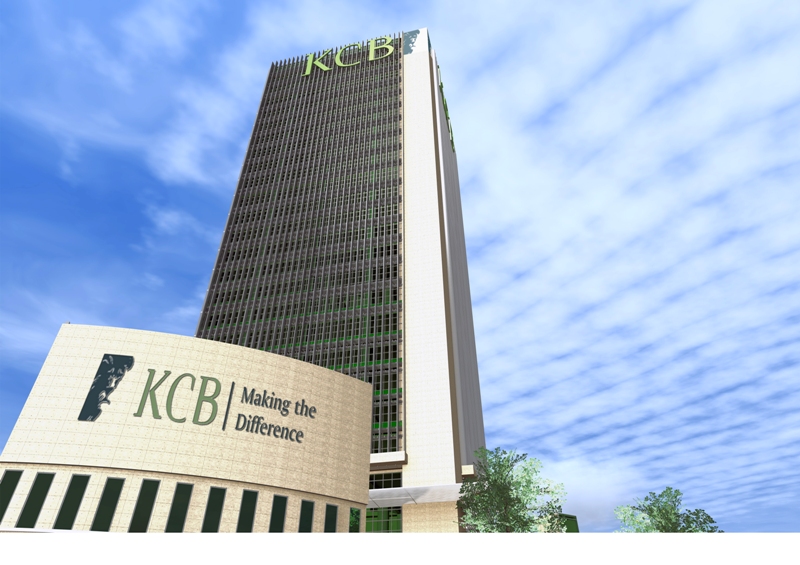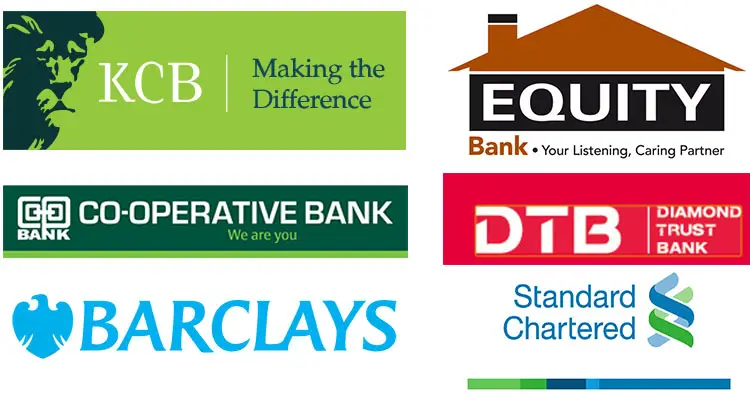Business & Money
Support for SMEs in Kenya: Join the SME Founders Association
The SFA provides a range of programs designed to address the varied needs of SMEs. A standout initiative is the “Grow, Scale, and Thrive Playbook,” which equips SMEs to tackle challenges and seize new opportunities. Supported by a database of over 11,000 SMEs that have engaged in SFA’s learning and networking initiatives, this program underscores the organization’s dedication to fostering entrepreneurship.

Join the SME Founders Association in Kenya to access resources, networking, and training for sustainable business growth. Support for SMEs is vital
The SME Founders Association (SFA) is a vital organization dedicated to supporting small and medium enterprises (SMEs) in Kenya.
Established in 2015 as the Profit Network—a business mentoring initiative—SFA has since transformed into an association that amplifies the voices of SME owners and advocates for their interests within the broader business community.
Based in Nairobi, the organization serves as a hub for entrepreneurial activity in the region.
Mission and Objectives
The primary mission of the SFA is to foster the growth of SMEs by providing access to markets, competent talent, and capital.
Recognizing that SMEs are crucial to Kenya’s economic development, the association aims to create a conducive environment where businesses can thrive.
According to SFA representatives, “We are committed to ensuring that SMEs are equipped with the tools and resources they need to succeed.”
Membership and Requirements
Joining the SFA is straightforward for aspiring members who meet the necessary requirements.
Potential members must be the founders or owners of a registered SME in Kenya.
Interested individuals can initiate the process by filling out an application form available on the SFA website or by visiting their Nairobi office. Once the application is reviewed and approved, new members can enjoy a range of benefits.
Benefits of Joining
Membership in the SFA comes with numerous advantages, including:
- Access to Resources: Members gain access to a wealth of resources, including the “Grow, Scale, and Thrive Playbook,” which provides assessments and interventions tailored to their business needs.
- Networking Opportunities: The SFA facilitates connections with other business owners, potential investors, and mentors, fostering collaboration and growth.
- Capacity Building: Members can participate in various training programs and workshops aimed at enhancing their business skills and operational efficiencies.
- Advocacy: The association serves as a collective voice for SMEs, advocating for favorable policies that promote a conducive business environment.
Programs and Initiatives
SFA offers a variety of programs tailored to meet the diverse needs of SMEs. One of its key offerings is the “Grow, Scale, and Thrive Playbook,” which helps SMEs navigate challenges and capitalize on opportunities.
Backed by a database of over 11,000 SMEs that have participated in SFA’s learning and networking programs, this initiative highlights the organization’s commitment to supporting entrepreneurship.
In response to the challenges posed by the COVID-19 pandemic, SFA played an instrumental role in helping 240 SMEs pivot their business models through virtual capacity-building initiatives.
These efforts were crucial in assisting businesses to adapt to a rapidly changing economic landscape.
In collaboration with INT-GIZ, SFA provided investor readiness training for three cohorts of young ventures during 2020-2021, equipping them with the skills necessary to attract investment.
This initiative underscores SFA’s commitment to preparing SMEs for access to capital, which is often a significant barrier to growth.
Connecting Education and Enterprise
A notable aspect of SFA’s approach is its focus on linking Kenya’s education system with community outreach. By facilitating partnerships between educational institutions and SMEs, SFA helps develop a skilled workforce that meets the needs of the business community.
This initiative not only benefits SMEs but also contributes to the overall economic development of the country by creating a pool of talented individuals ready to enter the job market.
Advocacy and Networking
As a leading association for SMEs, SFA serves as an advocate for the interests of small business owners at various levels of government and industry.
By acting as a collective voice, the association aims to influence policies that affect SMEs, fostering a more favorable business environment.
Additionally, SFA provides networking opportunities that enable SME owners to connect with potential partners, investors, and mentors.
This collaborative ecosystem is essential for fostering innovation and growth among SMEs in Kenya.
Conclusion
The SME Founders Association is a key player in supporting small and medium enterprises in Kenya.
Through its various programs and initiatives, SFA aims to empower entrepreneurs, promote sustainable business practices, and contribute to the overall economic development of the country.
As the landscape for SMEs continues to evolve, the SFA remains committed to helping business owners navigate challenges and seize opportunities for growth.
With a strong membership base, ongoing advocacy efforts, and a commitment to enhancing the SME ecosystem, SFA is poised to make a lasting impact on the future of entrepreneurship in Kenya.
Keywords: SMEs in Kenya:SME Founders Association:Business growth:Networking: Resources
Business & Money
KCB Group Surpasses Equity with US$ 342.31 Million Nine-Month Profit

: KCB Group reports Sh44.5B ( US$ 342.31) nine-month profit, outpacing
Equity Bank. Learn about its 49% growth, challenges, and stock performance this
year.
KCB Group Plc has outperformed Equity Bank to cement its position as Kenya’s leading
lender, posting a net profit of Sh44.5 billion for the nine months ending September
This represents a 49% year-on-year growth, surpassing Equity Bank’s Sh37.5
billion profit during the same period.
Profit Growth Driven by Core Business Performance
The remarkable profit growth was fueled by higher earnings from both interest and non-
interest income streams. KCB’s diverse revenue base has been pivotal in maintaining
its dominance in the competitive banking sector.
Non-Performing Loans a Key Concern
Despite the impressive profit growth, KCB’s non-performing loan (NPL) ratio rose to
18.5%, compared to 16.5% last year. This increase highlights persistent challenges in
managing credit risk, with Chief Financial Officer Lawrence Kimathi acknowledging it as
a “pain point” for the bank.
KCB Stock Outshines Peers on NSE
KCB’s strong financial performance has translated into exceptional stock market results.
The bank’s stock has risen 78.8% year-to-date, making it the best-performing banking
stock on the Nairobi Securities Exchange (NSE).
Plans to Sell National Bank of Kenya
Earlier this year, KCB announced plans to sell its struggling subsidiary, National Bank of
Kenya (NBK), to Nigeria’s Access Bank. While Nigerian regulators have approved the
deal, it is still awaiting clearance from Kenya’s Central Bank. The sale aims to
streamline KCB’s operations and address losses at NBK.
CEO Paul Russo Optimistic About Year-End Performance
“The journey has not been without its hurdles, but our ability to walk alongside our
customers has driven our success,” said KCB CEO Paul Russo. He expressed
confidence in closing the year on a high note, leveraging improving economic conditions
across the region.
Key Figures at a Glance
● Net Profit: Sh44.5 billion (+49%)
● Non-Performing Loan Ratio: 18.5% (up from 16.5%)
● Stock Performance: +78.8% year-to-date
KCB’s strong performance underscores its resilience in navigating challenges and its
commitment to sustaining growth in Kenya’s banking sector.
Business & Money
Top 10 Kenyan banks by total assets as of 2023, based on data from the Central Bank of Kenya:

KCB Bank Kenya Limited
Total Assets: KSh 1.425 trillion
Market Share: 17.4%
Equity Bank Kenya Limited
Total Assets: KSh 1.004 trillion
Market Share: 12.2%
NCBA Bank Kenya PLC
Total Assets: KSh 661.7 billion
Market Share: 9.2%
Co-operative Bank of Kenya
Total Assets: KSh 624.3 billion
Market Share: 8.8%
Absa Bank Kenya PLC
Total Assets: KSh 520.3 billion
Market Share: 6.6%
Standard Chartered Bank Kenya
Total Assets: KSh 429.3 billion
Market Share: 5.9%
Stanbic Bank Kenya
Total Assets: KSh 449.6 billion
Market Share: 5.8%
I&M Bank Limited
Total Assets: KSh 405.6 billion
Market Share: 5.4%
Diamond Trust Bank Kenya
Total Assets: KSh 399.6 billion
Market Share: 5.3%
Bank of Baroda (Kenya) Limited
Total Assets: KSh 201.9 billion
Market Share: 2.8%
These rankings illustrate the dominance of large Tier 1 banks, which collectively control over
76% of the market share. Strategic expansions, increased deposit mobilisation, and robust
lending practices underpin the sector’s strong performance
Business & Money
Vasundhara Oswal’s Legal Struggles and Family’s Plea for Justice

: Vasundhara Oswal, daughter of industrialist Pankaj Oswal, faces serious
charges in Uganda. The Oswals call for UN intervention amid claims of corporate
jealousy.
Vasundhara Oswal, the 26-year-old daughter of prominent Swiss-Indian industrialist
Pankaj Oswal, has found herself at the centre of a legal storm in Uganda.
Her father, a well-established business figure, is known for his diverse investments,
most notably a $150 million ethanol plant in Uganda.
This plant, the largest of its kind in East Africa, is a key part of Oswal’s broader strategy
to invest in industrial and eco-friendly solutions in the region. The facility produces extra-neutral alcohol (ENA), which is used in the beverage, cosmetics, and pharmaceutical industries.
It is recognised for its modern technology and sustainable practices, such as zero liquid
discharge, emphasising the Oswal family’s commitment to both industrial growth and
environmental responsibility.
In addition to the ethanol plant, Pankaj Oswal has made strategic investments across
various industries, including petrochemicals, agriculture, and real estate.
His ventures reflect a global reach, extending to Australia and India, where he has
been involved in industries ranging from agriculture to renewable energy.
His diversified business approach and commitment to sustainability have made him a prominent figure in international business. However, in October 2024, the family’s legacy was overshadowed by the legal troubles surrounding Vasundhara Oswal.
She was detained on October 1, 2024, after being accused of involvement in the
alleged murder of Mukesh Menaria, a former employee who had worked with the
Oswals since 2017.
Menaria had accused the family of harassment but later testified under oath that they
had not harmed him Despite this, charges of kidnapping and murder were brought against Vasundhara.
Her family has strongly denied these allegations, claiming that the charges are
politically motivated and part of a larger conspiracy orchestrated by their business rivals
in collaboration with corrupt officials in Uganda.
The Oswals have appealed to the United Nations, seeking intervention and asserting
that the legal proceedings against Vasundhara are unlawful. Vasundhara has actively managed the family business throughout her career, especially the ethanol plant, and led the company’s sustainable initiatives.
Beyond her business involvement, she has also been an advocate for community
welfare and mental health, further cementing the Oswal family’s reputation for corporate
social responsibility.
The unfolding legal drama has raised important questions about the intersection of
business, politics, and the legal systems in Uganda.
While the Oswal family’s ventures reflect a blend of industrial innovation and social
responsibility, the legal challenges Vasundhara faces have cast a shadow over their
business empire, highlighting the complex dynamics at play in East Africa.
-

 Business & Money8 months ago
Business & Money8 months agoEquity Group Announces Kshs 15.1 Billion Dividend Amid Strong Performance
-

 Politics3 months ago
Politics3 months agoFred Okengo Matiang’i vs. President William Ruto: A 2027 Election Showdown
-

 Politics2 months ago
Politics2 months agoIchung’wah Faces Mt. Kenya Backlash Over Gachagua Impeachment Support
-

 Politics4 months ago
Politics4 months agoPresident Ruto’s Bold Cabinet Dismissal Sparks Hope for Change
-

 Politics5 months ago
Politics5 months agoKenya Grapples with Investor Confidence Crisis Amid Tax Protest Fallout
-

 Politics5 months ago
Politics5 months agoPresident Ruto’s Lavish Spending Amid Kenya’s Economic Struggles Sparks Outrage
-

 Politics4 months ago
Politics4 months agoJohn Mbadi Takes Over Kenya’s Treasury: Challenges Ahead
-

 Business & Money1 week ago
Business & Money1 week agoMeet Kariuki Ngari: Standard Chartered Bank’s new CEO of Africa. What’s Next?





